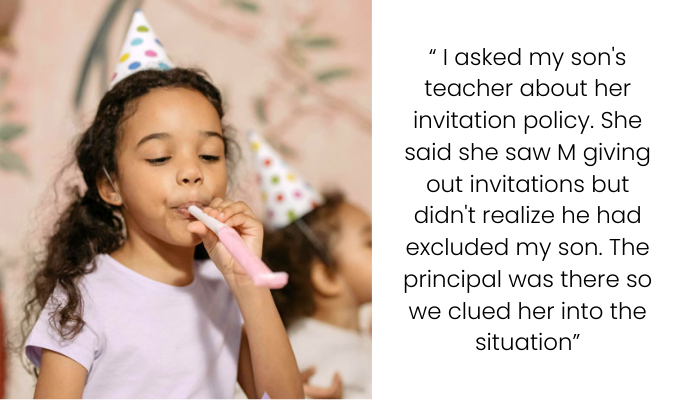Exclusion at School: When a Third Grader Is Left Out of Birthday Invitations
An 8-year-old student returned home in tears after being the sole classmate excluded from a peer’s birthday party invitations, which were distributed during class. The child, who already faces challenges in social integration due to unique interests like horses and steam engines, felt further alienated by this public omission. The parent, while acknowledging the right to selective invitations, expressed concern over the emotional impact of such exclusion, especially when conducted openly in a school setting.
Upon addressing the issue with school authorities, it was revealed that no formal policy existed regarding the distribution of party invitations. In response, the principal implemented a new rule prohibiting the handing out of invitations at school unless the entire class is included, aiming to prevent similar incidents in the future. Meanwhile, the parent focused on uplifting their child’s spirits by planning enjoyable weekend activities, noting a positive shift in the child’s demeanor.
When kids are not held accountable for their actions, they can turn into bullies as they grow up

The poster’s 8-year-old son came home crying as one of his classmates (M) invited everyone to his birthday party, except him
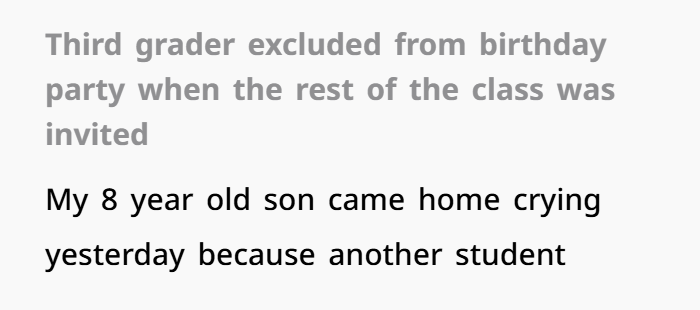
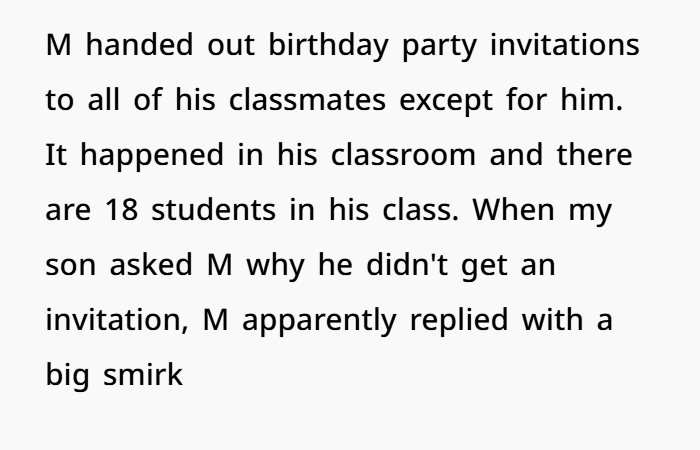
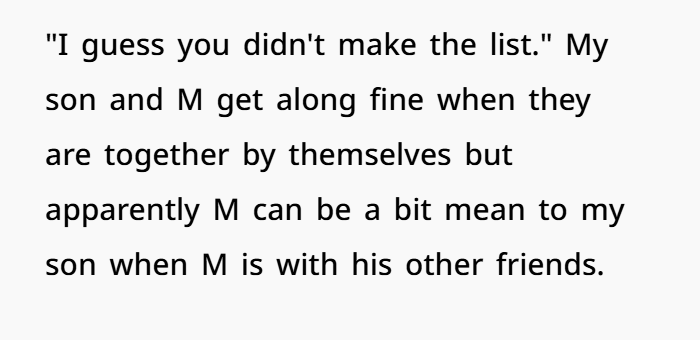
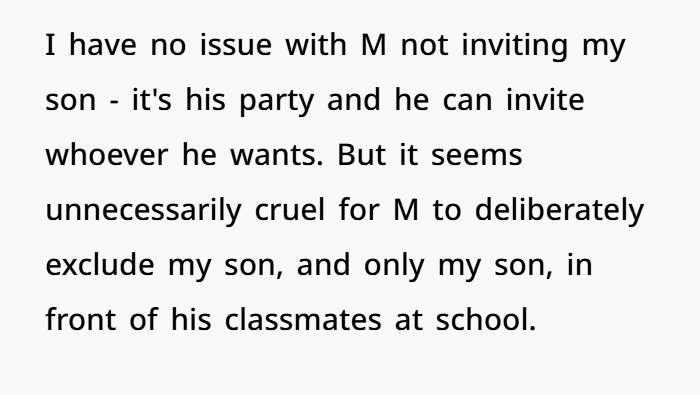
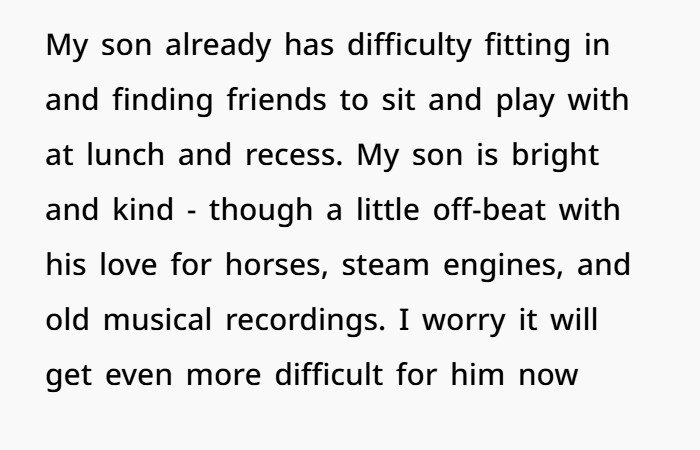
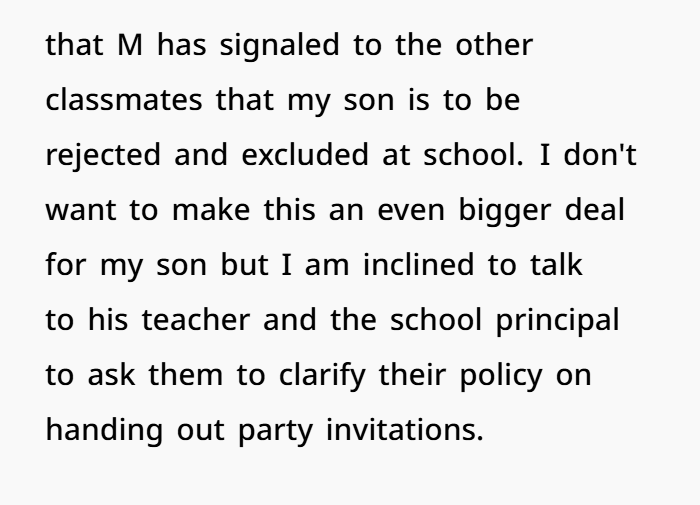
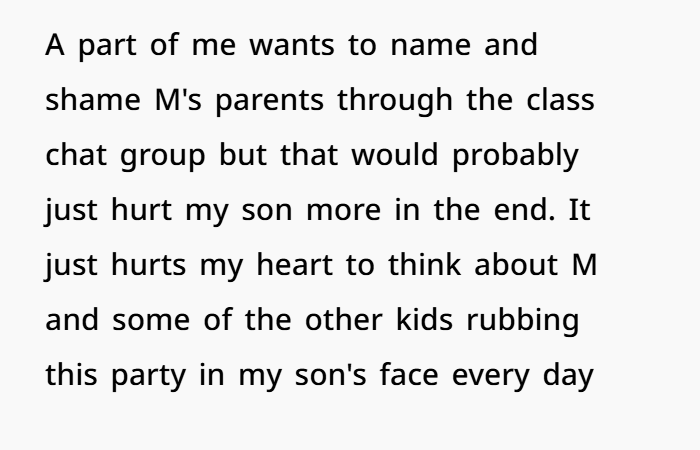


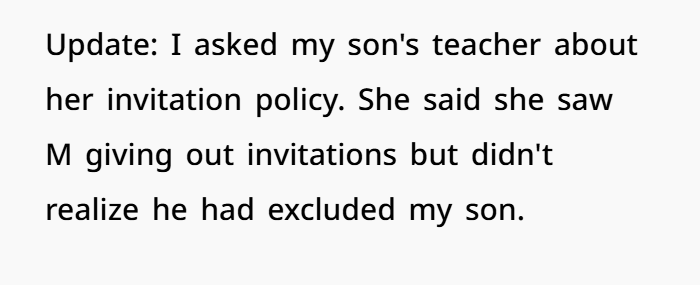
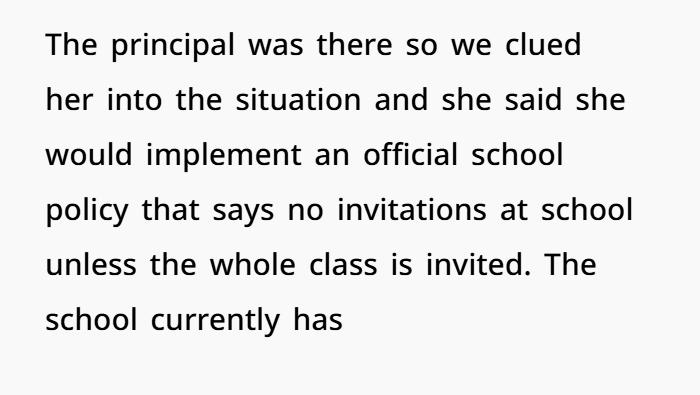
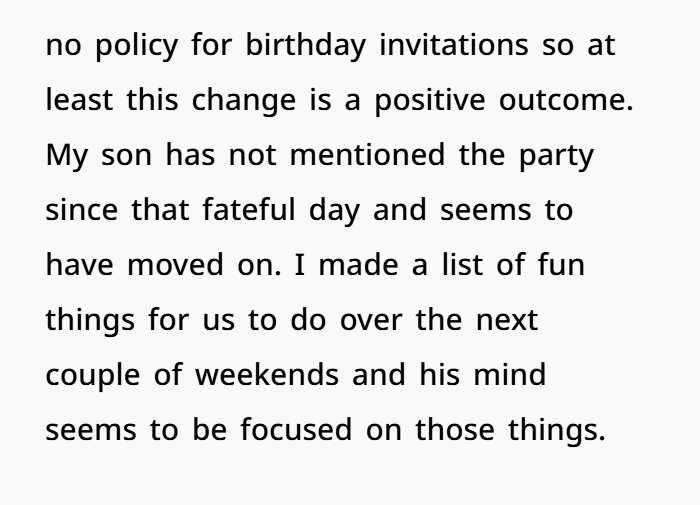
The Implications of Exclusion and the Role of School Policies
The Emotional Toll of Social Exclusion in Childhood
Social exclusion during formative years can have profound effects on a child’s emotional well-being. Being left out, especially in a public manner, can lead to feelings of rejection, decreased self-esteem, and social anxiety. Children with niche interests or those who are perceived as different are particularly vulnerable to such experiences, which can hinder their social development and academic engagement.Parents+1Wild Revival Garden & Home+1
The Importance of Inclusive Practices in Educational Settings
Educational institutions play a pivotal role in fostering an inclusive environment. Implementing policies that prevent public exclusion, such as restricting the distribution of selective party invitations during school hours, can mitigate instances of social ostracism. Such measures not only protect the emotional health of students but also promote a culture of empathy and respect among peers.
Balancing Personal Choices with Community Considerations

While families have the autonomy to decide whom to invite to personal events, it’s essential to consider the broader community impact of those choices. Opting to distribute invitations privately, outside of school premises, respects individual preferences while minimizing potential harm to uninvited classmates. This approach balances personal freedom with communal harmony, ensuring that children’s social experiences are both respectful and considerate.
Folks sympathized with her but advised her that it would be better to talk to M’s parents rather than call them out publicly
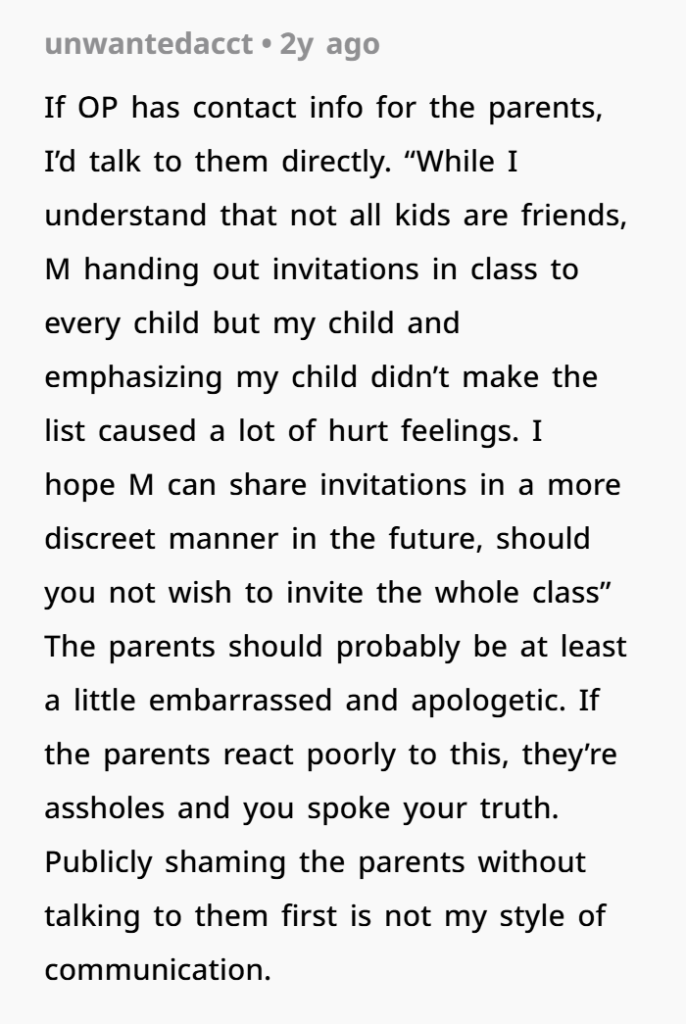
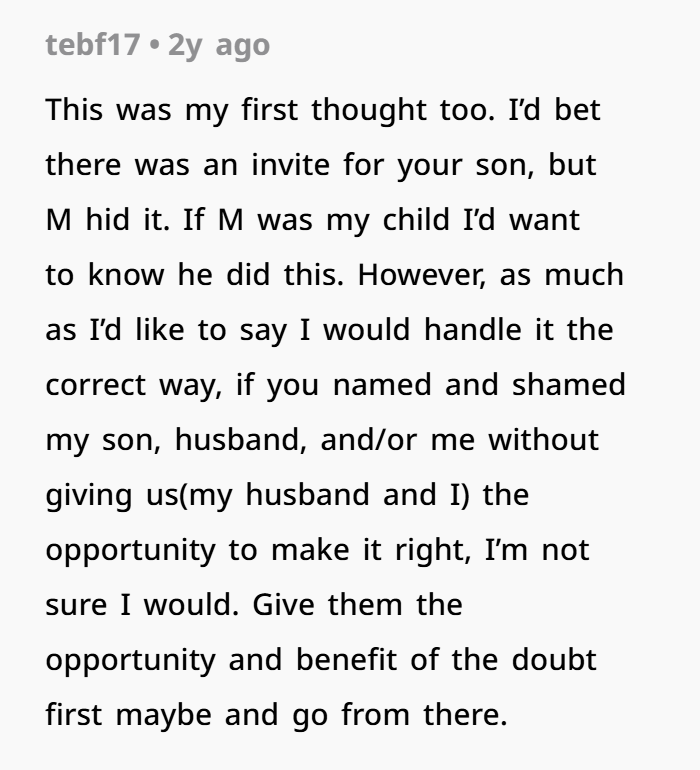
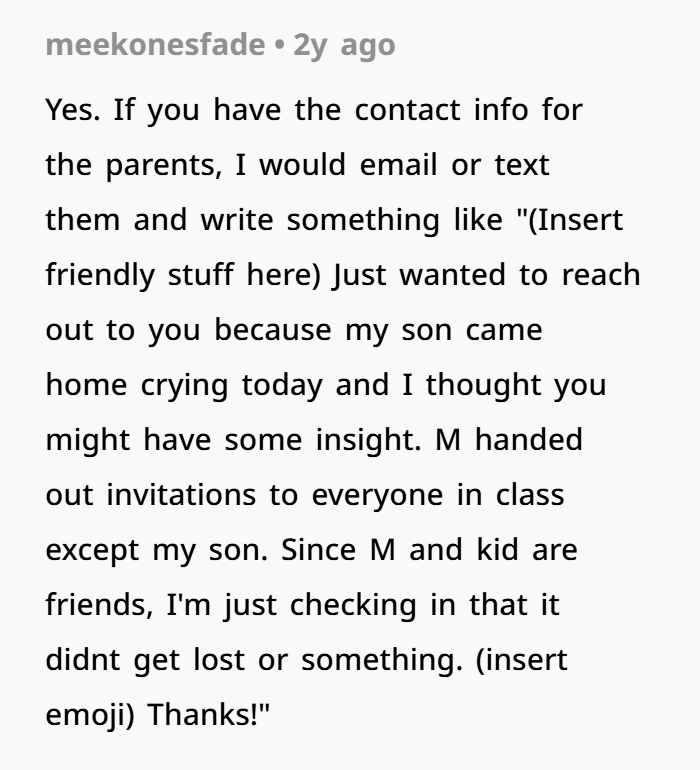
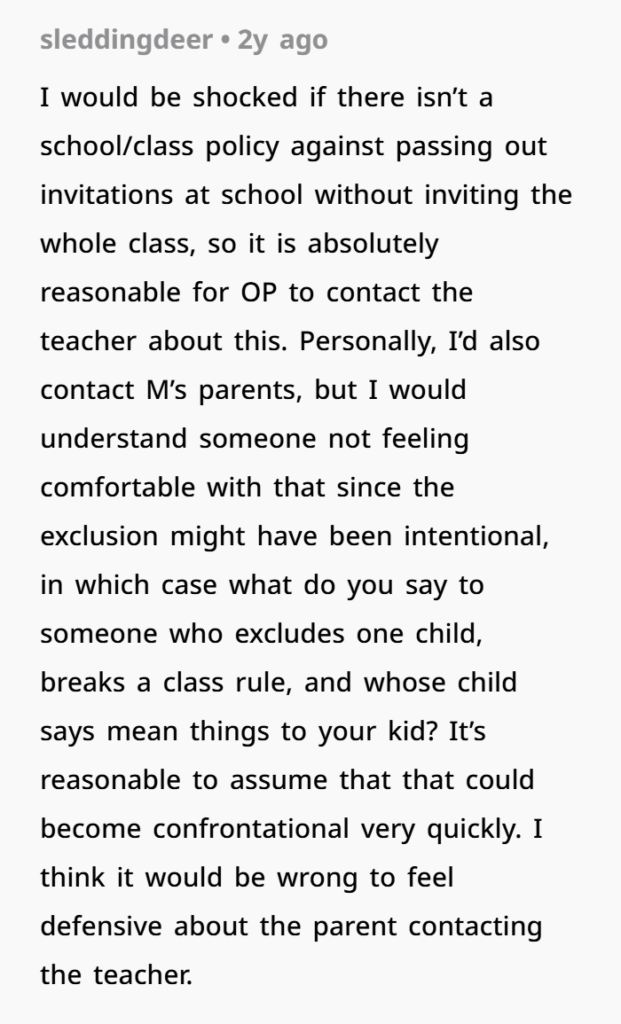
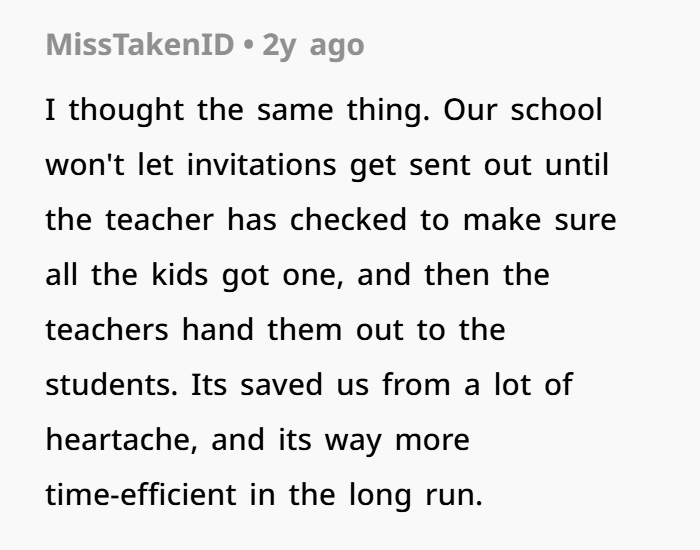
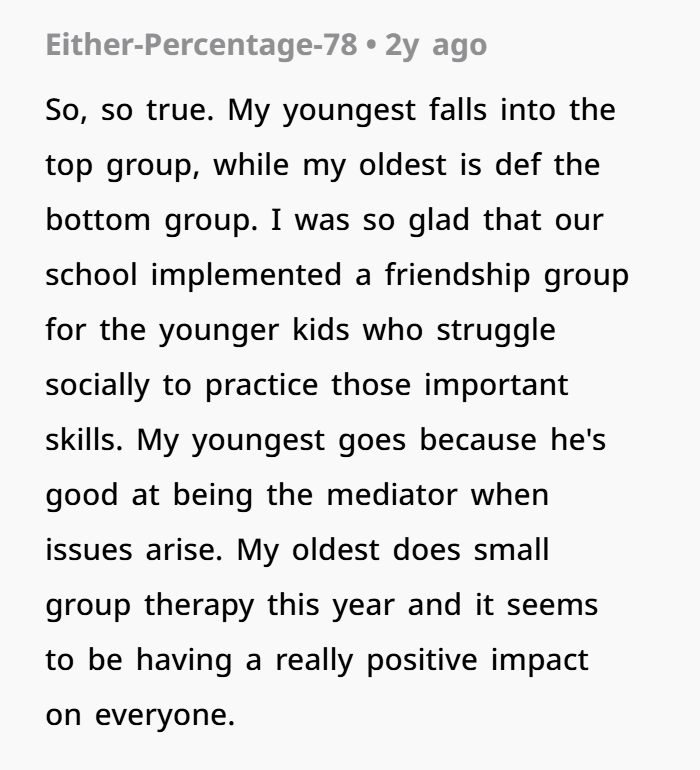
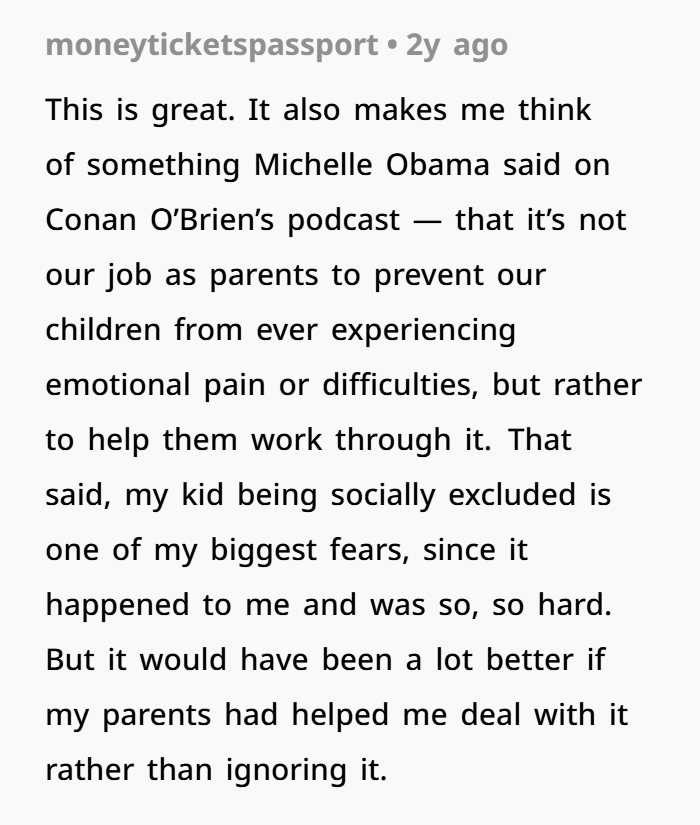
The incident underscores the delicate balance between personal choices and their communal repercussions within educational settings. By adopting inclusive policies and encouraging private distribution of selective invitations, schools can safeguard students’ emotional well-being and promote a more compassionate community. Parents and educators alike share the responsibility of guiding children towards empathetic social interactions, laying the foundation for a more inclusive society.

